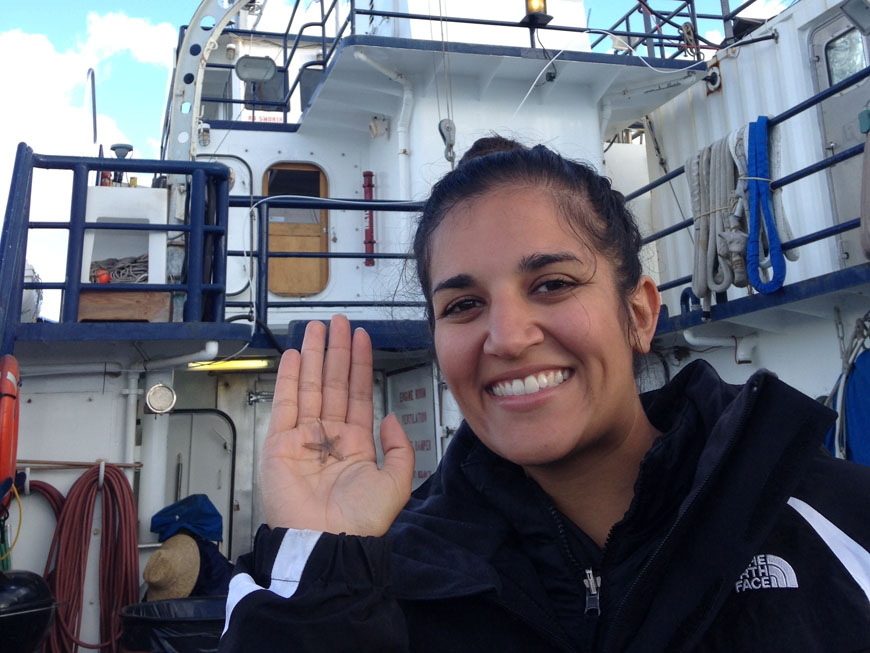
What’s the most exciting thing about your work?
AG: In its purest form, science is about asking a question and then systematically searching for the answer. To me, the most rewarding part of doing research is being able to ask “Why?” and then navigating the path to an answer. Sometimes you find unexpected things along the way, which makes the path even more exciting! Having the opportunity to pursue my deepest curiosities and find potential answers to some of the world’s most pressing problems are what really get me excited about my work.
Are there any role models or mentors who have helped you along the way?
AG: My undergraduate institution, Temple University, was very small and familial. Everyone helped each other become better scientists and people. I wouldn’t be where I am today if it weren’t for the support of all of my professors, friends, and teachers there. My master’s advisor Dr. David Grandstaff really helped me hone my skills as a young scientist and led me to develop a passion for my field. Since arriving at Scripps, I have had the pleasure of working with equally supportive professors and colleagues that have really pushed me to step out of my comfort zone and become a more well-rounded and skilled scientist.
What are some of the challenges you face as a student?
AG: Work-life balance takes on a different form for everyone depending on your priorities. For me, my husband, family, and friends will always be my number one priority. Sometimes, the demands of a PhD program take time away from them which I have found to be very challenging. I’m still learning how to be as efficient as possible at work so that I can maximize my time with them at home and truly be present when we spend time together.
What are your future plans?
AG: As scientists, it is our duty to communicate our work to the public in a concise and accessible manner. Conducting relevant research is the first step in this process. Ocean acidification is just one consequence of anthropogenic influences on the Earth’s equilibrium. In the future, I hope to continue performing geochemical research of other anthropogenically-driven changes in Earth’s processes. I hope to conduct my future research within an academic institution so I can simultaneously generate greater public interest in science, facilitate public discussion of current research, and motivate future generations of scientists to be more accessible and engaging to non-scientific communities.
As a woman and a minority, I also hope to serve as an example to others who are not well represented in the geosciences. I hope my future students will see my career path and know that no matter what their background may be, they are capable, intelligent, and talented enough to pursue their passions.
This interview has been condensed and edited. You can find the Andersson Lab on Facebook @anderssonoceanresearch.
– Brittany Hook






修改评论